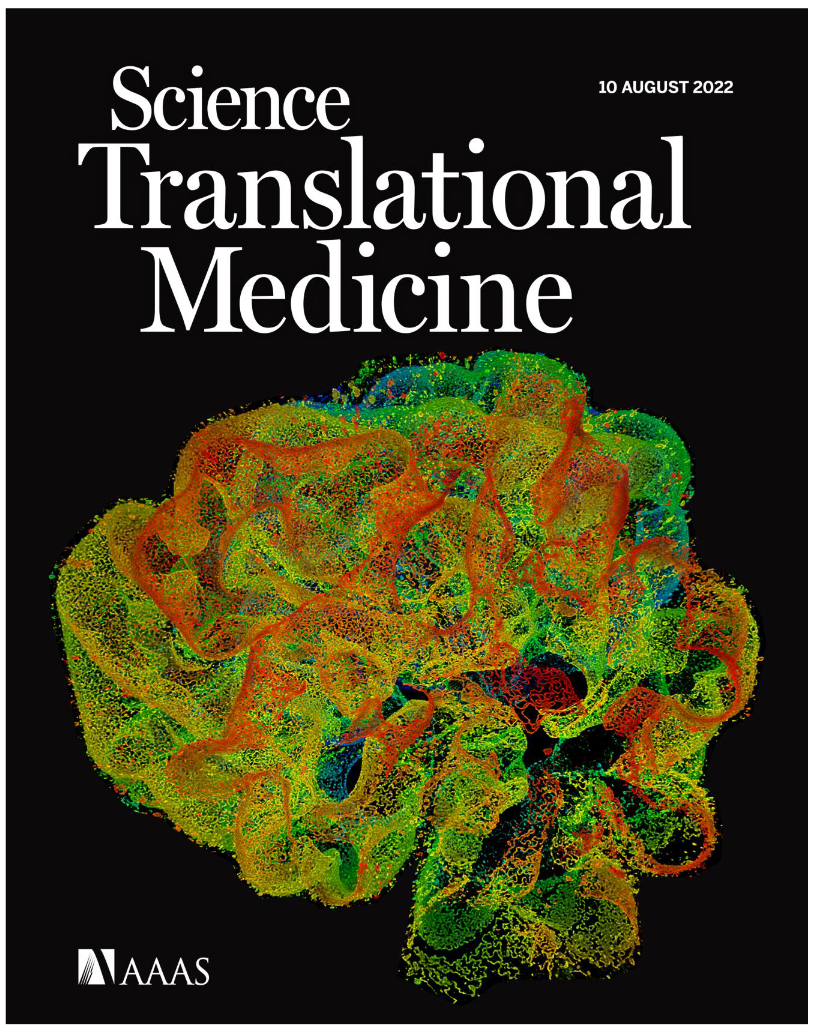Sexual dimorphIsM in renal PrOgenitors to explain gender- Specificity In kidney physiOlogy aNd diseases (SIMPOSION)
Sexual dimorphIsM in renal PrOgenitors to explain gender- Specificity In kidney physiOlogy aNd diseases (SIMPOSION)
Chronic kidney disease (CKD) represents a global health burden with a prevalence >10% of the global population [1]. CKD can progress toward end-stage kidney disease, requiring renal replacement therapy, i.e. dialysis and transplantation with high related risk of comorbidities and death for any cause and mostly for cardiovascular diseases [1]. Kidney disease show a consistent sexual dimorphism [2,3]. CKD progresses more fastly and kidney cancer is more frequent in males in comparison to females [2-5]. By contrast, preeclampsia still represents the most frequent form of kidney disease all over the world, affecting 7% of pregnancies [6]. The consequences of preeclampsia extend far beyond pregnancy, resulting in increased susceptibility to hypertension and CKD for the mother and the offspring [7].
How sex influences kidney biology and cardiovascular risk is still largely unknown. This generates crucial gaps in CKD prevention and treatment. Understanding the reason for these diversities may help unlocking crucial mechanisms for targeting preeclampsia, kidney cancer, CKD, and the related cardiovascular risk.
We first identified renal progenitors as crucial mediators of the kidney response to injury [8-15]. In this project we propose that sexual dimorphism in kidney diseases may result from different response of renal progenitors to sex hormone in males and females. We also propose that targeting the capacity of renal progenitors to respond to injury may help finding new treatments for different kidney diseases.
References:
1. Romagnani, P.; Remuzzi, G.; Glassock, R.; Levin, A.; Jager, K.J.; Tonelli, M.; Massy, Z.; Wanner, C.; Anders, H.J. Chronic kidney disease. Nat Rev Dis Primers 2017, 3, 17088, doi:10.1038/nrdp.2017.88.
2. Minutolo, R.; Gabbai, F.B.; Chiodini, P.; Provenzano, M.; Borrelli, S.; Garofalo, C.; Bellizzi, V.; Russo, D.; Conte, G.; De Nicola, L., et al. Sex Differences in the Progression of CKD Among Older Patients: Pooled Analysis of 4 Cohort Studies. Am J Kidney Dis 2020, 75, 30-38, doi:10.1053/j.ajkd.2019.05.019.
3. Ricardo, A.C.; Yang, W.; Sha, D.; Appel, L.J.; Chen, J.; Krousel-Wood, M.; Manoharan, A.; Steigerwalt, S.; Wright, J.; Rahman, M., et al. Sex-Related Disparities in CKD Progression. J Am Soc Nephrol 2019, 30, 137-146, doi:10.1681/ASN.2018030296.
4. Peired, A.J.; Campi, R.; Angelotti, M.L.; Antonelli, G.; Conte, C.; Lazzeri, E.; Becherucci, F.; Calistri, L.; Serni, S.; Romagnani, P. Sex and Gender Differences in Kidney Cancer: Clinical and Experimental Evidence. Cancers (Basel) 2021, 13, doi:10.3390/cancers13184588.
5. Aron, M.; Nguyen, M.M.; Stein, R.J.; Gill, I.S. Impact of gender in renal cell carcinoma: an analysis of the SEER database. Eur Urol 2008, 54, 133-140, doi:10.1016/j.eururo.2007.12.001.
6. Moghaddas Sani, H.; Zununi Vahed, S.; Ardalan, M. Preeclampsia: A close look at renal dysfunction. Biomed Pharmacother 2019, 109, 408-416, doi:10.1016/j.biopha.2018.10.082.
7. Turbeville, H.R.; Sasser, J.M. Preeclampsia beyond pregnancy: long-term consequences for mother and child. Am J Physiol Renal Physiol 2020, 318, F1315-F1326, doi:10.1152/ajprenal.00071.2020.
8. Sagrinati, C.; Netti, G.S.; Mazzinghi, B.; Lazzeri, E.; Liotta, F.; Frosali, F.; Ronconi, E.; Meini, C.; Gacci, M.; Squecco, R., et al. Isolation and characterization of multipotent progenitor cells from the Bowman's capsule of adult human kidneys. J Am Soc Nephrol 2006, 17, 2443-2456, doi:10.1681/ASN.2006010089.
9. Ronconi, E.; Sagrinati, C.; Angelotti, M.L.; Lazzeri, E.; Mazzinghi, B.; Ballerini, L.; Parente, E.; Becherucci, F.; Gacci, M.; Carini, M., et al. Regeneration of glomerular podocytes by human renal progenitors. J Am Soc Nephrol 2009, 20, 322-332, doi:10.1681/ASN.2008070709.
10. Angelotti, M.L.; Ronconi, E.; Ballerini, L.; Peired, A.; Mazzinghi, B.; Sagrinati, C.; Parente, E.; Gacci, M.; Carini, M.; Rotondi, M., et al. Characterization of renal progenitors committed toward tubular lineage and their regenerative potential in renal tubular injury. Stem Cells 2012, 30, 1714-1725, doi:10.1002/stem.1130.
11. Romagnani, P.; Lasagni, L.; Remuzzi, G. Renal progenitors: an evolutionary conserved strategy for kidney regeneration. Nat Rev Nephrol 2013, 9, 137-146, doi:10.1038/nrneph.2012.290.
12. Lasagni, L.; Angelotti, M.L.; Ronconi, E.; Lombardi, D.; Nardi, S.; Peired, A.; Becherucci, F.; Mazzinghi, B.; Sisti, A.; Romoli, S., et al. Podocyte Regeneration Driven by Renal Progenitors Determines Glomerular Disease Remission and Can Be Pharmacologically Enhanced. Stem Cell Reports 2015, 5, 248-263, doi:10.1016/j.stemcr.2015.07.003.
13. Lazzeri, E.; Angelotti, M.L.; Peired, A.; Conte, C.; Marschner, J.A.; Maggi, L.; Mazzinghi, B.; Lombardi, D.; Melica, M.E.; Nardi, S., et al. Endocycle-related tubular cell hypertrophy and progenitor proliferation recover renal function after acute kidney injury. Nat Commun 2018, 9, 1344, doi:10.1038/s41467-018-03753-4.
14. Romoli, S.; Angelotti, M.L.; Antonelli, G.; Kumar Vr, S.; Mulay, S.R.; Desai, J.; Anguiano Gomez, L.; Thomasova, D.; Eulberg, D.; Klussmann, S., et al. CXCL12 blockade preferentially regenerates lost podocytes in cortical nephrons by targeting an intrinsic podocyte-progenitor feedback mechanism. Kidney Int 2018, 94, 1111-1126, doi:10.1016/j.kint.2018.08.013.
15. Peired, A.J.; Antonelli, G.; Angelotti, M.L.; Allinovi, M.; Guzzi, F.; Sisti, A.; Semeraro, R.; Conte, C.; Mazzinghi, B.; Nardi, S., et al. Acute kidney injury promotes development of papillary renal cell adenoma and carcinoma from renal progenitor cells. Sci Transl Med 2020, 12, doi:10.1126/scitranslmed.aaw6003.
Studies funded by SIMPOSION:

Ultimo aggiornamento
13.03.2024
